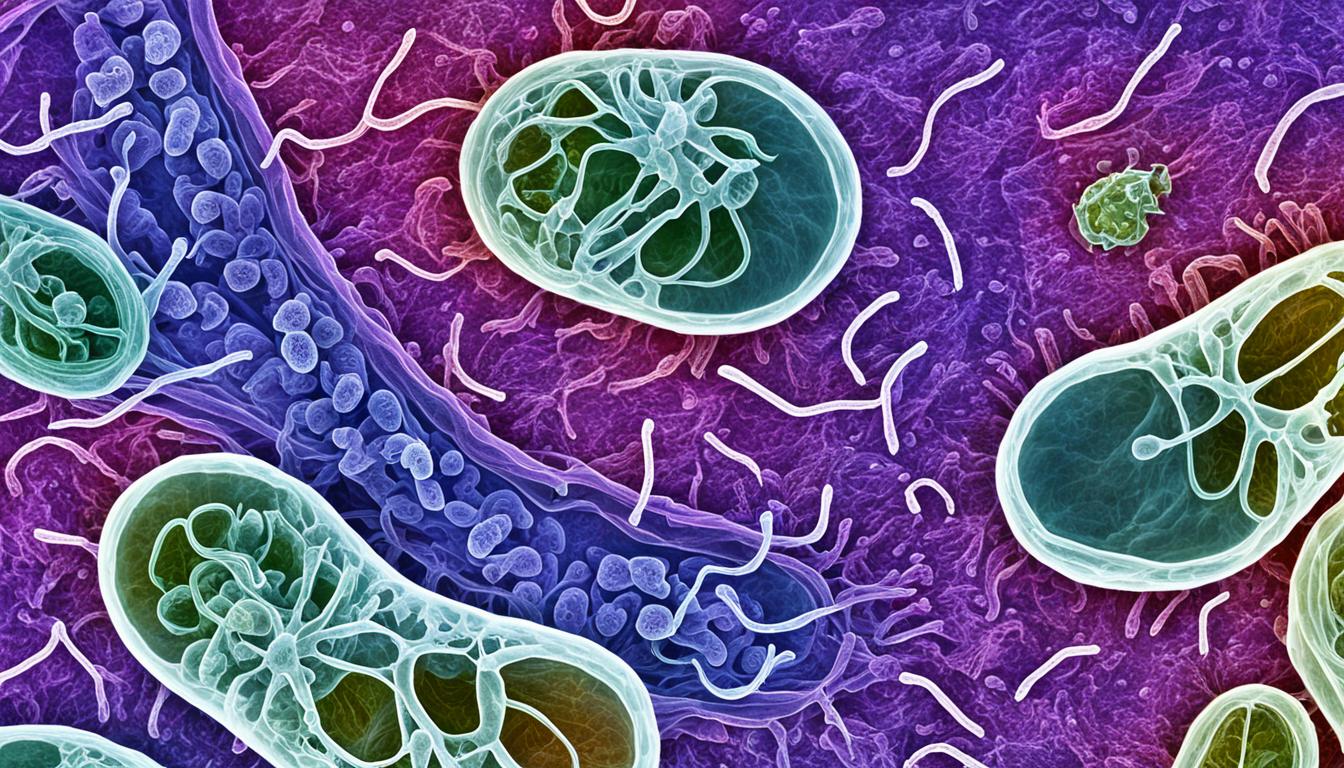Giardia is a tiny, flagellated protozoan parasite. It leads to giardiasis, a kind of diarrheal sickness. This parasite spreads through dirty water or food, or when people share the parasite directly.
The main symptoms of giardiasis are diarrhea, tummy pains, and feeling sick. To check for Giardia infection, doctors use special lab tests. These tests include looking at samples under a microscope (microscopy) and doing the ELISA test.
To fight off Giardia, patients usually take antibiotics. For the future, scientists are looking into using stem cell therapy to treat Giardia infections.
Key Takeaways:
- Giardia is a protozoan parasite that causes giardiasis, a diarrheal disease.
- Contaminated water, food, and person-to-person contact can transmit Giardia infection.
- Symptoms of giardiasis include diarrhea, abdominal cramps, and nausea.
- Diagnosis of giardiasis is done through laboratory tests like microscopy and ELISA.
- Treatment options include antibiotics and stem cell therapy shows promise for the future.
Symptoms and Diagnosis of Giardiasis
Giardiasis is caused by the Giardia parasite. It mainly affects the stomach and gut. Symptoms can include long-lasting diarrhea. This is often with bad-smelling stools. People might also feel stomach pain, uncomfortable, and bloated. Nausea, vomiting, tiredness, and dehydration are common too.
It’s tricky because some people might not show any symptoms. Yet, they can still spread the disease to others. This shows why finding and treating the disease early is key. This can prevent its spread.
Doctors use lab tests to diagnose giardiasis. They look for Giardia cysts or antigens in the stool. One way is to check the stool sample under a microscope. This lets them see the parasite’s unique features. ELISA tests are another quick and accurate method. These tests check for Giardia antigens.
Diagnostic Tests for Giardiasis:
- Microscopy: A method where experts check stool samples under a microscope. This helps spot Giardia cysts.
- ELISA: These tests can quickly and reliably find Giardia antigens in stools to diagnose the disease.
After a giardiasis diagnosis, the right treatment can start. This helps relieve symptoms and stops the parasite from spreading.
Causes and Prevention of Giardia Infection
Giardia infection, known as giardiasis, usually comes from swallowing Giardia lamblia cysts. These cysts like cold, wet areas, so they’re often found in dirty water. People can also get giardiasis by eating contaminated food or being around others who are infected.
Good hygiene is key to avoiding Giardia. Always wash your hands with soap and water, especially before you eat or touch food. Drink and use clean water, either filtered or boiled, to make sure it’s safe from the cysts.
Handling food safely is just as important. Wash raw fruits and veggies well before eating them. Cook meats and seafood fully; this kills any Giardia. Try to eat only from clean or trusted places, even more when you’re away from home.
If you do these things, you can lower your chance of getting Giardia. This not only protects you but also those around you from this illness.

